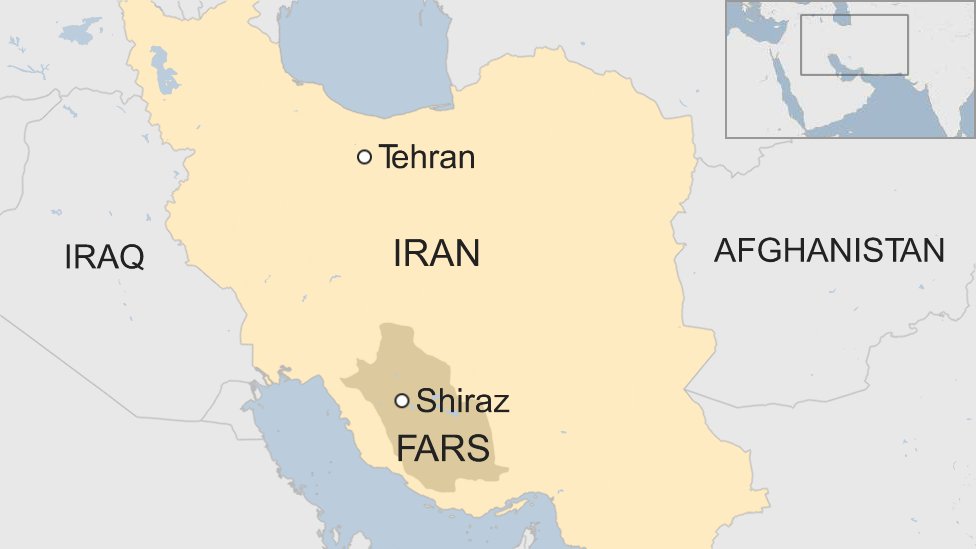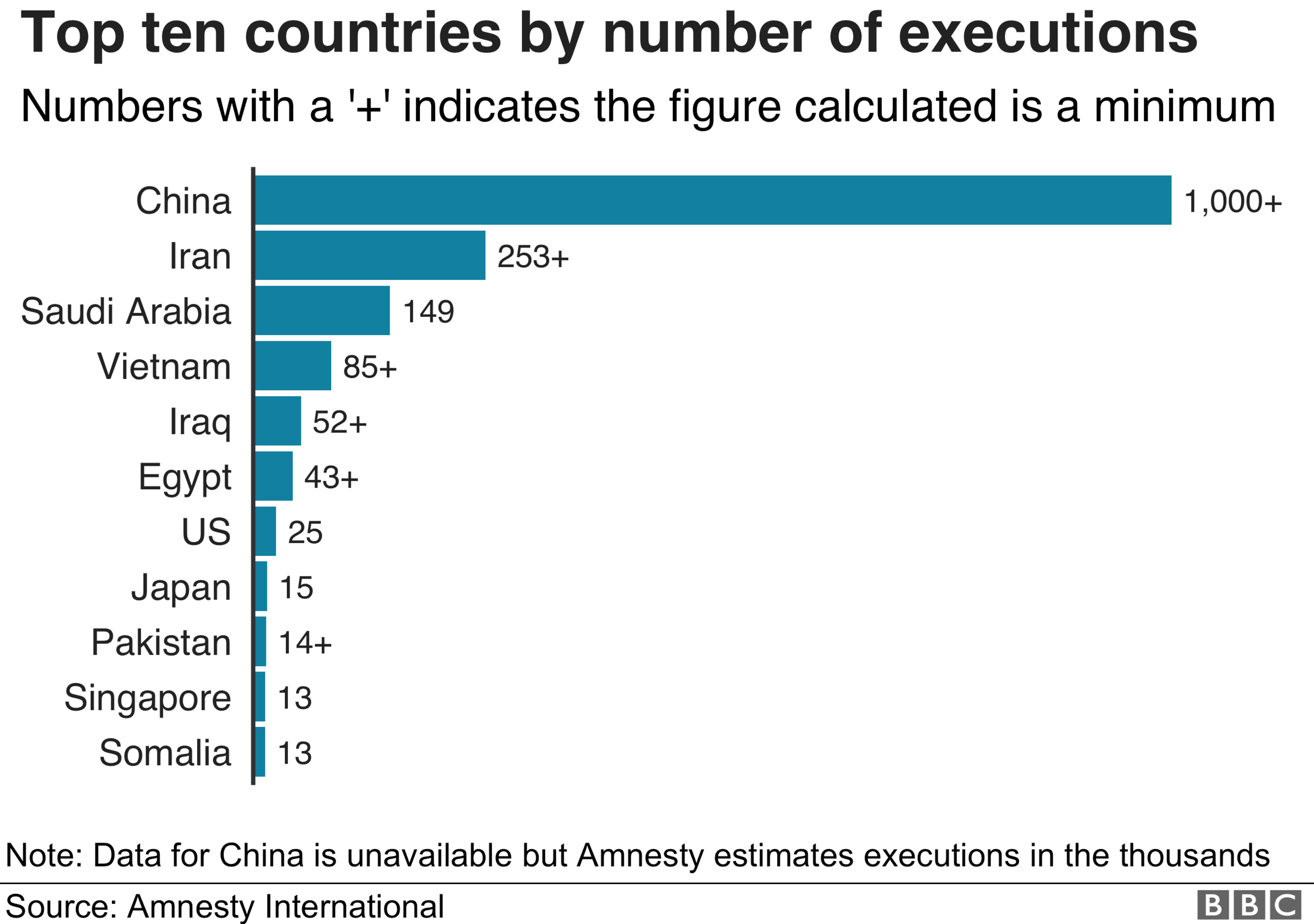'Execution' of Iranian teenage boys condemned
- Published

The US and human rights groups have expressed outrage over reports that Iran has executed two 17-year-old boys.
Mehdi Sohrabifar and Amin Sedaghat were 15 when they were convicted in 2017 on multiple rape charges, after what activists said was an unfair trial.
They are believed to have been moved from a juvenile facility to a prison a day before their deaths last Thursday.
Iranian authorities reportedly did not inform the boys' families or lawyers that they had been sentenced to death.
Iranian officials have not commented on the reports. According to Amnesty International, Iran has executed almost 100 juvenile offenders since 1990 - the highest number of any nation.
More than 90 other juveniles remain at risk of execution. Many of them have spent prolonged periods on death row - in some cases more than decade.
International law strictly prohibits the use of capital punishment in all cases in which the accused was under 18 at the time of the crime.
Sohrabifar and Sedaghat, who were cousins, were reportedly executed last Thursday in Adel Abad prison in the southern city of Shiraz.
Amnesty said it had received information suggesting the teenagers were unaware they had been sentenced to death until shortly before they died.
The boys' families were granted a visit to the prison the previous day, but were not told that it was in preparation for their execution, the human rights group said.
The families reportedly learned of the news on Friday, when they received telephone calls from Iran's Legal Medicine Organisation.
Amnesty said there were lash marks on the bodies, indicating that they had been flogged before their deaths.

"The Iranian authorities have once again proved that they are sickeningly prepared to put children to death, in flagrant disregard of international law," said Philip Luther, Amnesty's Middle East director.
The charity said the legal proceedings leading to the boys' conviction and sentence were unfair and flagrantly violated the principles of juvenile justice.
The boys were reportedly held for two months in a police detention centre, where they said they were beaten and denied access to a lawyer.
One source told Human Rights Watch that Iran's Supreme Court had reversed the death sentences handed to the boys after their initial trial, but that a court in Shiraz had reinstated them.
Another source said the Supreme Court had subsequently upheld that verdict, and that a forensic doctor had determined the boys had reached the developmental maturity to understand the nature of the crimes.
"There is no justification for executing children," said Michael Page, Human Rights Watch's deputy Middle East director. "Iranian officials transported Mehdi Sohrabifar and Amin Sedaghat straight from a juvenile facility to the gallows."
The US state department said it was "appalled" by the reports, which it said were unfortunately "consistent with Iran's egregious overall human rights record".